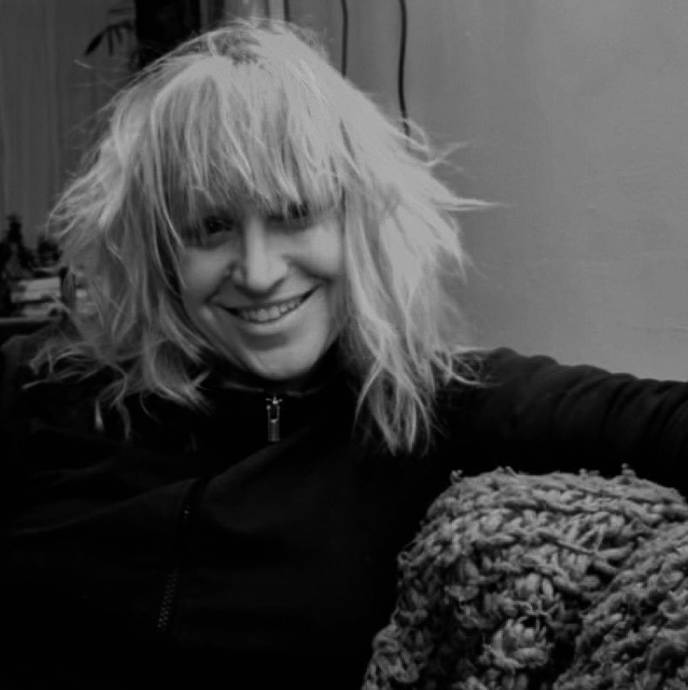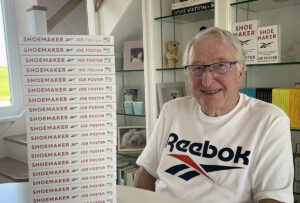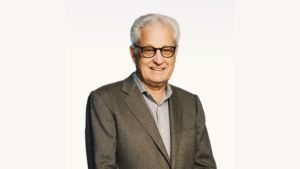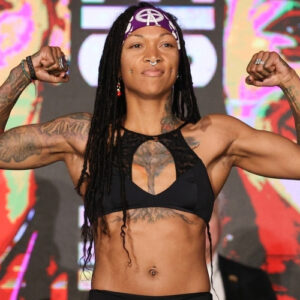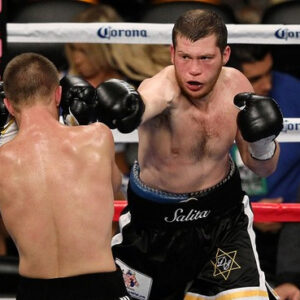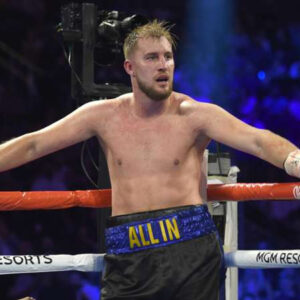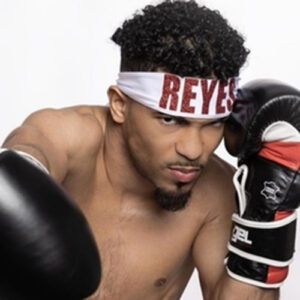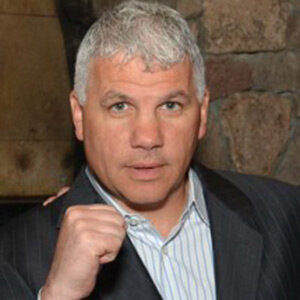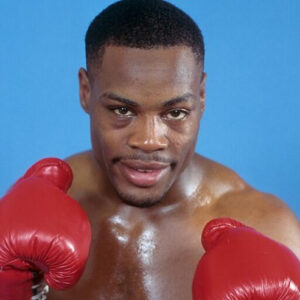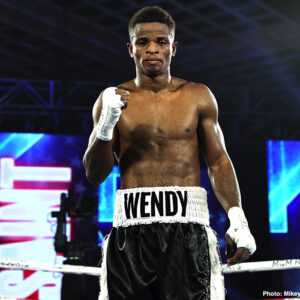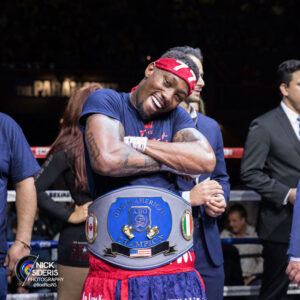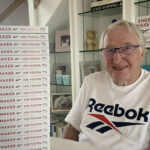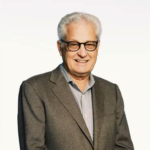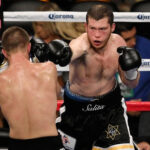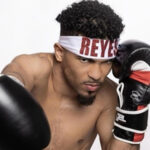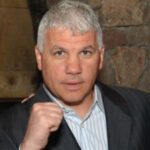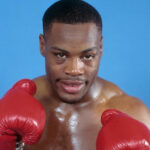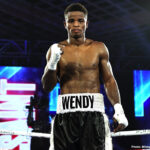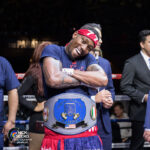Click below to view this episode's trailer.
Listen on your favorite podcast network.
“Artist Brianna Martray embraces the contrast of light and dark.”
Brianna Martray decided in her mid-twenties that creating the life she truly wanted, that of a fulltime artist, was a risk worth taking. As she became successful and demand for her work grew, she realized that one thing needed to change—end her alcohol addiction or die.
Brianna chose life and began the process of transforming her life breakthrough after breakthrough, one step at a time. Taking a break from the studio to get sober taught her the power of eliminating negative self-talk and listening to her gut. She wanted more than anything to realize her full potential as a sober person and as an artist, so she bravely took the path of discovering this new identity.
Even when we are clear about what we want, we still need to embrace the process of change which involves living with darkness, in other words, embrace the contrast. Remaining open and aware of opportunities for growth, no matter how painful they may be, is the key to being your most authentic self. The other key? Being gentle with yourself throughout the process. Brianna’s advice is to notice, without judgment, what is negative and gently redirect it to something positive.
Creativity, in all its forms, is cathartic and can lead to breakthrough. After all, the purpose of art is the same as life, to share it, while loving others and ourselves deeply.
If you’d like to learn more about Brianna Martray, visit her website www.brainnamartray.com or email her at briannamartray@gmail.com. We’re always Tougher Together! Please tune in to other episodes of our Breakthrough podcast and explore the human connection between us.
Rebeccah Silence, is a speaker, coach and international media personality, who survived cancer while pregnant and has impacted hundreds of thousands of listeners through her radio programs and appearances. She is the Creator of the HEALING IS POSSIBLE movement and courses and is committed to helping others heal their traumas. As a certified world-class Emotional Healing Coach, Rebeccah is uniquely qualified to facilitate breakthroughs to wellness and transformation while she inspires hope and possibility in even the most challenging times. She is best known for healing heartbreak, and her clients frequently tell her that she brought them “back to life”! www.rebeccahsilence.com
To learn more about all our inspiring podcasts visit https://www.lifestough.com/.
TRANSCRIPT
Rebeccah [00:00:00] Get ready to meet someone who loves life and has made her life hers. She is an internationally renowned full-time artist pursuing her dream no matter what obstacles and darkness shows up in her path. She faces it, moves through it and conquers it. Let’s welcome Brianna Martray to the Tougher Together, Breakthrough Podcast.
Intro [00:00:23] The Tougher Together, Breakthrough podcast is brought to you by RebeccahSilence.com. Visit RebeccahSilence.com and check out the online courses designed to help people like you stay tough. See for yourself. So, what is a breakthrough? It’s finding your way out of suffering and stuck. It’s that feeling of new energy, renewed life and excitement. When I was seven months pregnant with my second baby, I received a life changing diagnosis. I had cancer. When I told my older daughter, she said “So, you’re going to die?” And the only thing that saved my life during that time was knowing how to emotionally break through. Welcome to the Tougher Together, Breakthrough podcast. I’m your host, Rebeccah Silence. I’m a speaker, coach and the creator of Healing is Possible. In each episode I prepare you for life no matter what challenges you’re facing. I’m going to invite you into the stories of real people who are living life in breakthrough and making the world a better place. If they can do it so can you. Breakthrough is your right. Get ready to break through. Get ready for the rest of your life.
Rebeccah [00:01:49] If you are someone who has ever felt like you were living at 10% capacity and you want full life, full expression, you don’t want to miss this episode with international artist and just extraordinary woman leader Brianna Martray. Brianna has transformed her life. Breakthrough after breakthrough after breakthrough. And she’s going to tell us how. Brianna, welcome to the Tougher Together, Breakthrough podcast. It is such an honor to have you.
Brianna [00:02:26] Thank you so much. Thank you for asking me to be here. I really appreciate the opportunity.
Rebeccah [00:02:30] It’s been really fun for me to be in your journey, watching your journey and in your life for so long and for you to have been there for me as well. Let’s just let’s just dive right in. What do you want people to know about who you are and how breakthrough has made the difference in your life?
Brianna [00:02:52] Oh, well, gosh, where to start? It’s such a big question. Who am I? I am a full-time artist and I started in my mid-twenties. I just sort of saw an opportunity and decided it was a risk worth taking because it was the life that I wanted to create for myself. And so I, you know, jumped off the cliff and quit my job and started, you know, making art full time and hoping that people would like it enough to help me pay my bills. And it happened. And you know about, you know, 15 years ago, and it has continued to build and snowball since then. And truly, as far as breakthroughs go, it’s sort of been this constant evolution of being open and willing and aware of when there was an opportunity for growth. And, you know, like we were talking about earlier, facing the darkness and the obstacles and, you know, finding the way around the rock and the road and following the path around to the next step. And there’s always a next step. It’s what I’ve found is that it’s never, you know, you don’t ever kind of land at the “I have arrived” spot; there’s always more growth possible and it takes that vigilance of constantly being aware of, you know, that each place is maybe you’re plateaued for a little bit, but it’s still just a stepping stone to the next part of your journey. You know, and I don’t I don’t think we’re ever completely done. As long as we’re still alive, there’s still room for growth. So and wanting to constantly break through, to constantly evolve, to know that you are capable of more, to watch your self-talk and to, you know, really reach deep inside yourself at every opportunity to expand as much as you possibly can. You know, knowing that you have more potential than the 10%, you know. And, kind of being aware, honestly, without judgment of where you’re at, you know, if it’s… if you know you’re maybe capable of 80% more than that’s great. But if you’re like already, you know, 90 and you’re giving it your all and again, without judgment into a place of being a witness and an observer and knowing that, you know, you tried your hardest this time, you know, what’s the next place where you can try your hardest?
Rebeccah [00:05:30] What I’m hearing you say is that breakthrough gives you access to more life. And let’s not forget that we’re not ever done as long as we’re still alive. And then the other thing that I heard that I think is really important for our audience to pay attention to is being willing to be aware, being willing to look at where you are. And then to me, that means that there must be some significance to knowing where you’re going as well. Can you speak to that? Like being aware of where I am now has to have some relationship to where I’m going.
Brianna [00:06:04] Absolutely, I mean, I think getting clear about what you want is, I mean, essential, because otherwise you’re just, you can be aware of where you are but not know which way to turn towards the next thing. You know, I think it’s really important to have, you know, a clear intention and clear direction so that you know, you’re facing when you are aware of where you are, that you’re facing the right direction for the next step, you know, because otherwise you’re just veering off and… Which is OK too, again, get into that place of non-judgment of yourself and having compassion with yourself because we’re all going to fall down and have to get back up. And we’re, you know, there’s going to be times where you aren’t aligned with what you are thinking that you want. And then that opens up a path to like, Oh, wait, this is actually, you know, a better place for me to turn and face this other thing. So, I mean, I think there’s, you know, awareness. I think it’s broader than just being myopic about your goal because I think at a certain point, sometimes goals shift and you think you wanted this one thing over here and then, you know, another opportunity will present itself and you’re like, Oh, wait, this might be, you know, more achievable or a better option for myself. So, it’s, you know, I think, intention and knowing what you want and being clear about that is important. But with the willingness to be a non-judgmental observer and say and being open to the possibility that maybe there’s something better also out there for you. I think the contrast is really important. You know, when you’re living in contrast and knowing, getting so clear about what you don’t want… that helps you. It’s uncomfortable. It’s uncomfortable to be uncomfortable. Nobody likes it to be in pain or to be in suffering. But it really helps with the clarity of, OK, I don’t like this. This is bad. This is uncomfortable. I’m in pain, I’m suffering, I am in the contrast. So, if this is the contrast, what is it that I want? What is the opposite of this, you know? So having that clarity and then getting yourself in the right direction and then being open to other possibilities within that, you know, correct direction, that’s away from living in the contrast, I think. This is all, very sort of like, broad and there’s like central examples here, but I think it’s an important like large brushstroke, you know, to nail down. So…
Rebeccah [00:08:31] I really, really, really like what you’re saying about contrast, and I think it would be cool if you would explain a little more about how contrast impacts breakthrough. And then let’s just go into the story of Brianna and who you are and what your journey of breakthrough after breakthrough has been.
Brianna [00:08:52] Yeah. So, I’m on the creative side. I mean, I grew up as a very creative person. I was sort of unclear when I was younger, whether it was going to be visual art, music or writing. I went to school for creative writing. I play the piano from a very young age and was very into music for a time, and poetry. And then I was doing this visual art on the side and in my mind, it was never really a possibility to make a living as a visual artist. So, I just sort of that’s why I went to college for creative writing, thinking I wanted to be a novelist. And they don’t really make a lot of money, either. So, I don’t know what I was thinking as far as that goes. But then I had an opportunity to have my first art show while I was gone, getting my teaching English as a foreign language degree in Prague, and then I came back and everything had sold. It was just like in a friend’s hair salon, and I was… it obviously caught my attention. And this is kind of what I’m talking about of just sort of like casting a wide net and creating opportunities for yourself and being open to it. Maybe this doesn’t look like what I thought it did. Maybe it’s not going to be writing that’s going to be my direction. Maybe it’s visual art because people are really responding to this. So, I was willing to, you know, follow that path. And it’s definitely paid off to pay attention to the feedback from the public. You know, how people were responding to my visual work. So, I went down that path and then, you know, lots of… So that was sort of the career move towards visual art. I started out as an oil painter, moved into sculpture and then moved back into 2D work and sort of was carried a clarity of voice through those different mediums and did some installation work and stuff too with still staying clear about sort of the world I wanted to… my inner world that I wanted to sort of portray to this world, but then my personal journey sort of, you know, had this path alongside my career with just, you know, love and loss and all of the things that are part of the human experience. And then drinking sort of got caught up in all of that. Alcohol is very normalized in the art world. And I was going through a terrible divorce and the pandemic hit and like just a lot of, you know, very tumultuous time. And so, my drinking was in a dangerous place before, but it spiraled. And I, I knew I was in trouble. So I, you know, marched my drunk ass down to the hospital and then I got sober, went through detox and checked myself into rehab. And, you know, I wasn’t creating a lot at that time. Obviously, I needed to get myself sorted out. And I was willing to take the time to really work on myself internally because being in that place just wasn’t… You know, when I create it’s like… I just knew I was so much less of myself and I didn’t want to be only giving a small percentage to the world anymore, so I knew I needed to do that inner work to become a more whole person so that what I was able to present and give the world was like, a larger percentage of what I’m capable of. I knew my light was dimmer, that I was capable of radiating so much more light than I was at the time. So, I took a long break from the studio and worked on myself. And then, as I became more healthy in body and spirit and mind, you know, I was able to get back in the studio and, you know, kind of have a large breakthrough and in my creative life as well. So, I think, you know, when I was talking about self-taught, I think it’s really… As a creative person, I think it’s incredibly important what you’re saying to yourself, you know, not just in the studio, but in all of your life and where you’re coming from and how much, how gentle you’re being with yourself and how much compassion you’re treating yourself with. And I think that shows through, you know, with what you’re able to produce and it creates a more authentic just expression of yourself in the end that is, you know, full of light and goodness, the more that you’re able to, you know, live a life of light and goodness.
Rebeccah [00:14:02] In response to all of that, Brianna, how did you know what was the breakthrough? So many people want to get sober or take on their dream career or take the risk to express themselves. What was the breakthrough that a) had you know, pursue the art; that b) had you know get your ass sober; and then c) had you know, it’s time to start creating again. There’s so much you just said that’s magic.
Brianna [00:14:36] Thank you. Yeah, I mean, I think it’s been tuned into yourself and your own intuition and listening. I mean, I was kind of call it the capital K Knowing, you know, like… Because it is annoying and just that gut instinct that people call it. Sometimes it’s just really tapping in to that deeper, larger part of yourself. And, you know, and your capital T Truth. Like I knew from a very young age that my most authentic self was a creative self. And so that had to be the direction that I was going to take because that felt like the truest expression of this human experience for me. And then, you know, with the drinking, it was just sort of getting to the point… You know, I got to the point where it was… I had wanted to stop long before I actually did. And, you know, alcohol… I admire people who can drink socially and regularly and not have an issue with it. And it’s something in the brain or the genes for some people is just broken and there’s not, you know, an appropriate off switch. And so that happens to be the case for me. And so, by the time I sort of wanted to stop drinking and have a sober life, I was already physically dependent, because of the science behind alcohol. My body needed alcohol to function, which is why I had to do seven days of medical detox before I even got to rehab. And so, when I was in this place, I realized that it was death, you know, that was coming. I was going to die, if I didn’t stop drinking and that it was just a slow suicide, and I was really clear that I am not suicidal. I don’t want to die. I have a lot that I want to do, a lot that I want to give the world, a lot that I want to experience, and that it was just sort of as plain as day when it became abundantly clear to me that it was like literally life or death. And it was like, Well, I choose life, you know, so I have to get to the hospital because I don’t want to die. So that’s, you know, yes, that’s like an intuition and, you know, and a gut. But it’s also just very tangible and real that like this is… I am not done. It became, you know, much more surface than digging deep. The alcohol part did.
Rebeccah [00:17:14] Brianna and I met because my oldest, who was three at the time, decided it would be fun to pick up a big wooden block that was so pretty that Brianna had painted with her fingers. In the beginning, you were painting with your hands and my oldest picked it up and you so compassionately, came over and said, Can we please put this down? I didn’t even know she picked it up. I was all busy chatting and that was the beginning. When I saw you years later I fell in love with you right away. It’s been really fun to watch the journey from the painting to the sculpture to now the sketching. But we were talking about you basically had made a decision that you didn’t want to produce art from this dark place. You wanted to be—these are my words, not yours—really responsible about the work that you were doing and the work that you were putting out. So, the last piece that I wanted to just hear your perspective on was, you know, it’s almost like you went into this cocoon of darkness, faced all of it. And man, does it take courage. It is not easy to go “I know that I will die if I keep drinking and I’m going to choose not to, and I’m going to choose to go into medical detox and I’m going to choose to go into rehab and I’m going to choose for rehab to work.” How many people have to go into rehab over and over? So, I mean, I’d love for you to speak to that. But also, just how did you know when it was time to create again? And then the creation now is different than any of the art that you did before. And it’s all amazing, but it’s really cool to see this next iteration.
Brianna [00:18:51] Yeah, I mean, in an odd way it was it was just sort of these circumstances that lined up for me that were also global and, you know, the pandemic was terrible. It has been terrible for, I mean, so many reasons. It’s this, you know, trauma that the entire globe has experienced together. And surely, we all have some form of PTSD from it. But for me, on a personal level, I finally had a moment to take a breath and to pause and to really check in and not have another show and another show and another show, you know, so I was able to get sober. I was able to take time and just reflect on what being sober looked like to me. And I mean, the word that just keeps coming up is gentle and just be gentle with myself and, you know, sort of check in on a daily basis. You know, look at the studios at one time. No, not today. OK, that’s fine. I’m just going to go over here and do the dishes or whatever, you know. And again, with the observer witness non-judgmental place where you’re taking a step back from yourself and saying, you know, that’s OK, you know, there’s no deadlines right now. I have a moment to breathe. It’s OK if I don’t go into the studio today because like I was saying at the Last Supper that… It’s important to me what I’m giving. I feel like a lot of the creative process for me, one thing I learned during the pandemic was that the sharing of it is so important to me. The conversation, the dialog; otherwise, it’s just a monologue. You know that if I never show the work, it’s just sitting in the closet and it doesn’t… Not that it doesn’t have significance but, like, a huge part of it is, of the gift of art, is in the sharing and the dialog that it creates with the public. And so, I want to be careful. And you know, it makes me think of the four agreements when they say, be impeccable with your word, you know, like, I want to be impeccable with the words visually that I present to the world, that I give to the world, that the dialog that I open up. For me, it’s important that that comes from a positive place in me because I want to bring more beauty and grace and authenticity and joy to the world, not darkness. And that definitely has its place. You know, there’s the balance of everything in the yin and the yang. But just for me personally, it’s important to be the light more, or to present, to radiate the light as much as possible. And then one day I was ready and there was time and I, you know, it was a long wait, but I’m really glad I took the time for myself. And, you know, I meditated and talked to my therapist and, you know, I figured out who I was as a sober person. I had been drinking fairly heavily for a lot of years, you know, and just getting reacquainted with what I look like when my lumens are turned up, you know, when I’m not operating at 10% and when I’m shining brighter, who is that person, you know? What does the brightness look like internally for me? And then how do I translate that and give it back to the world? So, I think creativity is an interesting thing, too, because it is, you know, when it’s true and authentic, it’s like you’re just sort of the vessel and it’s like, you know, it just sort of runs through you and it’s strong, you know, like a bone with the marrow in the middle, but you know, you’re flowing through. And if you’re clogged up, then it’s like, you know, that stuff gets mixed up in the translation. And so, it was important to me to make sure that I was in a place where I could be, you know, the best vessel at the time to sort of translate through what I wanted to present and give to the world.
Rebeccah [00:23:14] So beautiful. So, who are you in your light as the sober artist that you are?
Brianna [00:23:20] Yeah, I mean, that’s a huge big question, who are you? You know, I could spend decades on trying to figure that out and find the right words to verbalize it and articulate it in a precise fashion, but… Just me, I don’t know, I don’t know how else to… You know, there’s a bunch of words like adjectives or whatever that I could throw out to try and describe, but it’s sort of more slippery than that. Because it’s bigger than that, and it’s like from a place that’s sort of like beyond words, you know, that just feeling connected to your best self is it’s like almost too limiting to try and, you know put borders around the ocean or whatever, you know. It’s just this connected, like, conscious, aware vastness that is that connects all of us, this interconnectedness and it’s… I’m referring to myself as a “it.”
Rebeccah [00:24:12] The ocean that you can’t put borders around. Yes.
Brianna [00:24:16] Yeah. Yeah, it’s really hard to find words to succinctly say who I am as a sober artist who wants to, you know, give the world light instead of darkness. I guess that’s kind of it. I… I don’t want to say struggle; just daily sort of check ins with what is true at the moment. On an emotional level, on an intellectual level, on a gut level. And then not being afraid of that for myself or for how the world will, you know, receive or not receive it. And because that doesn’t really matter in the end. You know, it’s being your authentic self, is you can’t get caught up in what other people are going to think, because then you’re not being, I mean, that doesn’t even make sense. You can’t be your authentic self if you care, because then you’re constantly trying to rearrange things to please someone. And like, who? Like, what? Why? It doesn’t even make sense. It just doesn’t compute like the math breaks down, you know? So, I think it’s all the inner work, all the self-talk, all the connection, the awareness and even saying, like, doing the work on yourself. I don’t even like saying that because it’s just all so much more downstream than that. Like, it’s not, you know, back to like the contrast in, you know, like the whole thing is to like not be turning around and working so hard to paddle upstream. It’s like letting go of the world and just going with the flow, going with what’s downstream with yourself and with, you know, the world around you. This, you know, ability to sort of gently steer your vessel, but without this struggle, this constant struggle of going upstream and just going downstream and being authentic and, you know, just avoiding the rocks when you can and finding the path around and focusing on that, you know where of the rock in the road so that you don’t hit it. But focusing on the path around the rock, you know.
Rebeccah [00:26:20] And when you do hit the rock.
Brianna [00:26:21] Then, you know, you get up and you try again and get back in your little boat. You go around that rock.
Rebeccah [00:26:27] Get out your little paintbrush, pencil, whatever the medium is. The other thing I love that you’re bringing to us is the power of creativity as access to breakthrough. Will you speak to that a little bit?
Brianna [00:26:40] Yeah, I mean, I think one of the biggest points about that is that everything doesn’t have to be a masterpiece. You know that it’s cathartic and it’s emotional and it’s a bringing out of your inner life. And so in whatever form, whether it’s music or writing or, you know, something visual, it’s accessing that deeper part. And so, you know, it doesn’t have to be the right notes or, you know, whatever thing that critical judgmental part of you is saying is good or not good. It really is just about the process of creating, because I think that process draws you into your inner world. And so, you know, you don’t have to be a professional artist or professional musician or whatever to be able to use creativity to get to that place. The trick is, I think, it’s not judging it; not being afraid to make a piece of crap painting or play, you know, an out of tune instrument. And just for just really accessing the need to create as humans. I think that’s a powerful part of us. And it doesn’t always have to be perfect for it to serve its purpose for you and your inner life. I think it’s just a gateway in really. And I think everybody has it, you know, even if you’re an accountant or whatever, everybody has their form of creativity that really resonates with them where they can get to that meditative, sort of hypnotic place of feeling connected to themselves and to the world around. It’s invaluable, you know, really, I think it should be a part of everybody’s life if they can or if they want.
Rebeccah [00:28:31] Yeah. Well, you’re bringing that capital K Knowing and that gentleness and that trust and that ability to be with the dark, and willingness to be with the dark so that you can be the most light and experience the most light, and not thinking each moment has to be your masterpiece. But, in the commitment to the masterpiece, to me, what you represent, Brianna, is commitment, commitment to life, commitment to loving life and being the most you in life and getting the most out of life is something I hear people say they want all the time and then you’re actually living it. So, you’re bringing this example of possibility to our audience that is incredible. And then the more you just let each moment be what it is, as you stay in this commitment, more life becomes your masterpiece and you create the masterpiece called your life. That’s what I’m hearing from you and what a gift you are, and in my life personally, but to all of us, you’ve really taken that commitment to making art and being authentic with it to a place that most people dream of. I mean, you’re a very successful artist, super humble in this podcast, but you are internationally renowned, very successful, very highly in demand. And her work is incredible. It’s all over my house, and I want the newest stuff too, by the way.
Brianna [00:30:00] Thank you for all those kind words. And again, back to the idea of it being a constant evolution. I mean, there’s, you know, every day is a journey, and I think it’s just the desire to constantly evolve and start from where you are and, you know, reach for the next best feeling, thing, reach for the next step stone, reach for the next, you know, creative process and yes, you know, taken as a whole. One is really building a life that they love, but it takes one step at a time, you know, to stay in the present and just look towards what is the next step, you know? And then from there, what’s the next step, you know, just, you know, because all of that future tripping that you can paralyze you, you know, like, Oh, well, I’m here at Point A, but I want to be at Z. It’s like, Well, you have to go through, you know, B and C and D. And to get there, you can’t just, you know, fast forward to some place without going through all of those steps, and that takes just being really centered and present, I think, in the now and then just looking for the next step and then, you know, just one thing at a time. And then all of a sudden, you’re at Z and then you start all over.
Rebeccah [00:31:20] You know, I love it. Yeah, it’s never done. And we’re still here and what are we going to do with that? And what you said earlier about the purpose of art being to share it? I also believe the purpose of life is to share it. And if you won’t share you with you so that you can share you with the world, how do you experience as much life as you could?
Brianna [00:31:39] Absolutely. Yes, that’s well-put. Yeah. in order to share you with you, I mean, it takes time. And, you know, treating your relationship with yourself as the most important relationship in your life and not neglecting that. Like, you wouldn’t neglect, you know, your mother or a family member that you love deeply. It’s like, you deserve that for yourself, too in every moment, you know. You’re by your side more than anybody else ever will be, you know, so your most valuable, important relationship is the relationship you have with yourself. Absolutely. And that goes back to the self-talk. And if you wouldn’t say those things that you say to yourself, to your mother or to your child, or to someone that you love deeply like, why are you saying that to yourself? It’s your most important relationship, you know.
Rebeccah [00:32:27] And that’s your capital T Truth that you’re talking about, right? So, OK, what homework do you have for our gorgeous audience, Brianna Martray?
Brianna [00:32:38] Well, that was that was a good segway because actually, as we talked about it earlier, what popped into my head was the self-talk. Because often we say things to ourselves that we aren’t even aware that have just been there for years for whatever reason, doesn’t matter. But we don’t even notice that we’re repeating these negative things to our self. And so, the homework that I would challenge people to try, if they’re ready, is to check in, you know, with their self-talk and what dialog is happening inside and without judgment. And, you know, as a witness and an observer, just notice how much is positive and how much is negative and slowly, gently try to redirect the negative thoughts to positive thoughts because it really there’s science that backs it up that it actually really makes a difference. And just how, you know, the wiring works in our brains. The neural connections, I mean, it’s like the more we repeat things to ourselves, the deeper they become engraved, the deeper that that little pathway, you know, scientifically is in your brain. And so, you know, you’re digging this Grand Canyon of pain and suffering and despair. If you’re repeating that to yourself over and over and over again, if you’re looping the bad thoughts, it’s a Grand Canyon in your brain. It makes it really hard to get out. So, to sort of redirect that river and just slowly, like, when you notice this loop of bad thinking, you know, to gently change that into something positive. Well, literally rewire your brain and make the positive thoughts. A new canyon that you will slowly start going down more frequently as you dig that deeper pathway in your brain. So, the homework, I would say, is just to check in, you know, and see how often you’re saying good things to yourself about yourself versus how often you’re saying bad things to yourself about yourself. And, you know, to gently try to redirect into…
Rebeccah [00:34:52] Yeah, I love that gentle word. And then I love what you said earlier that similar around contrast using that awareness around, Oh, this is a thought that I don’t want or this is a belief that I don’t want or a pattern or whatever it might be. And then following that into, Well, what would I want instead? It is an insanely powerful tool that we all have access to. And then how do we get in touch with you Brianna Martray?
Brianna [00:35:21] Oh yeah. So my website is just my name briannamartray.com. Or you can email me at briannamartray@gmail.com.
Rebeccah [00:35:37] Everyone should go to her website immediately. Check out the art that has come from this gorgeous doll in this gorgeous human that just shared her story with all of us. We are tougher together. I am such a better person having you in my life, and it is an honor to watch and be a part of your journey. Thank you so much for joining us.
Brianna [00:36:00] Thank you, Rebeccah. Thank you so much.
Outro [00:36:02] Please note that the content of this podcast is not meant to be therapeutic or to replace any personal growth work that you are already doing with a coach, therapist, or mentor. Take the content, have it inspire you, and then keep working with your support system. The Tougher Together, Breakthrough podcast is brought to you by our sponsor RebeccahSilence.com. Whether you need to be a good friend to yourself, or to be a good friend to someone else, visit RebeccahSilence.com today, and check out the online courses designed to help people like you get through the toughest of times. See for yourself at RebeccahSilence.com. If you have a question that you would like answered on the Tougher Together, Breakthrough podcast please call 303-578-0027 and leave us a message. We will do our best to get to your question. And, if you like what you’re hearing please hit Subscribe right now, on whatever podcast platform you’re listening on and be sure to also share with your friends. Breakthrough is your right. Breakthrough reminds us that we’re tougher together and that we’re connected to possibility even in the most challenging and possibly darkest times. I’m Rebeccah Silence, creator of Healing is Possible and proud host of the Tougher Together, Breakthrough podcast where we come together and we tell stories of real breakthrough that exist for you as well. Get ready to break through, get ready to live more free, and get ready to experience more breakthrough. Because that’s your right. Join us on the Life’s Tough Media website and stay tuned for more. If you want to get in touch with me, visit RebeccahSilence.com. Your time is now. Your breakthrough begins now.

